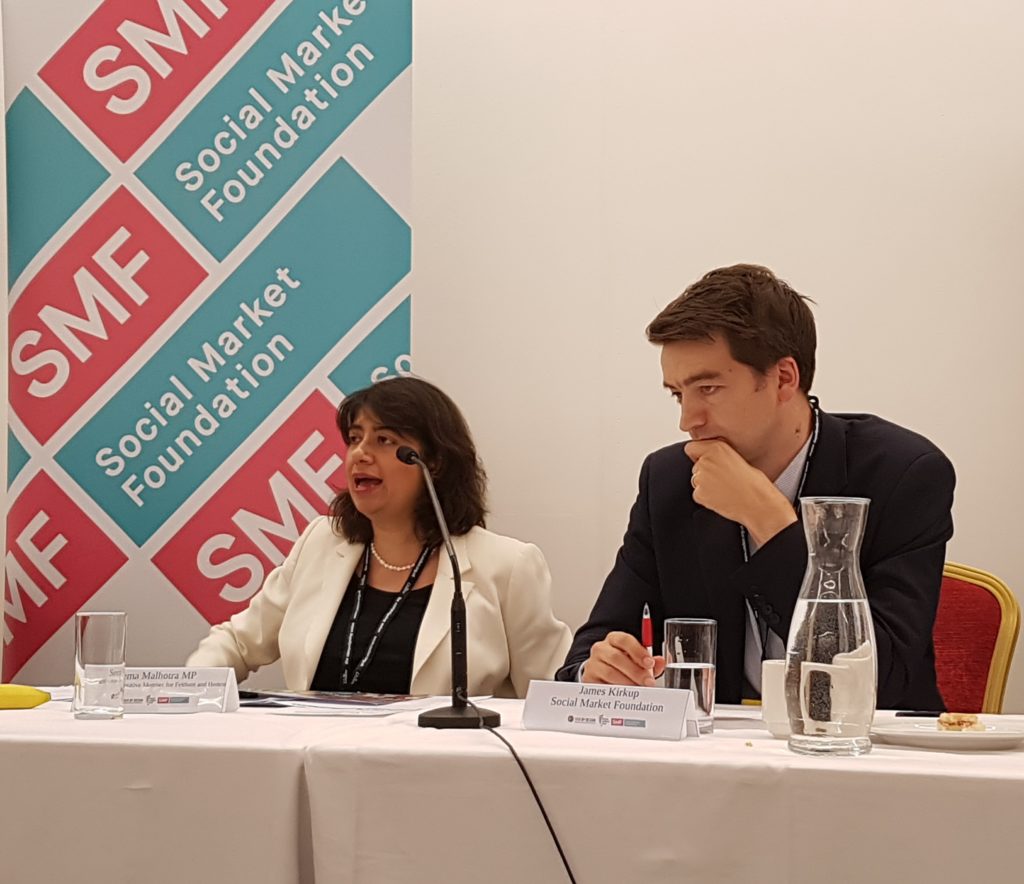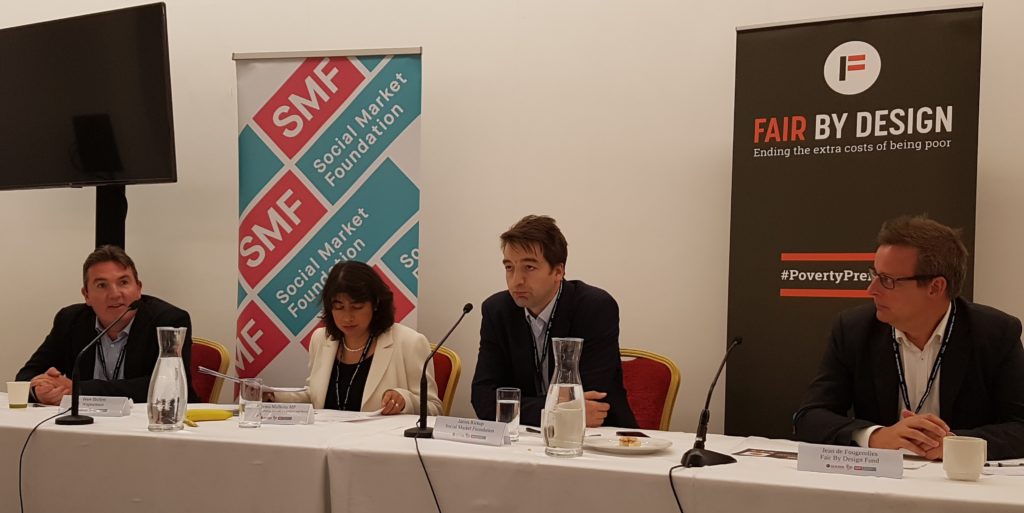Too many markets work poorly for low-income consumers, who face poverty premiums on their purchases and a restricted choice of products and services. New technology promises to offer new products and more consumer power for people buying energy, banking services, insurance and many other products. But what if it’s only wealthier consumers who benefit, while the poor miss out?
Speakers:
Seema Malhotra MP, Labour and Cooperative Member of Parliament for Feltham and Heston, member of the APPG on Inclusive Growth
Jean de Fougerolles, CEO, Fair By Design Fund
Peter Briffett, CEO, Wagestream
Chair: James Kirkup, Director, Social Market Foundation
Seema Malhotra MP opened with a warning that technological innovation could worsen injustices such as the financial exclusion experienced by some on low incomes.

“We’ve seen the advent of new technologies which have the potential to include, but the huge potential to exclude.”
Exclusion is promoted by providers who push customers to pay online – and charge more to those who cannot. Limited access to direct debit can also exclude.
Malhotra said that financial innovation should be assessed on four criteria: must focus on The World Bank’s four dimensions. This included:
1) Are they online only?
2) Ease of access
3) Safety and security. Regulators must ensure new products command the same confidence as traditional ones. that we’re used to with other products;
4) Long-term viability. Will they result in sustained changes in saving or spending behaviour?
Jean de Fougerolles agreed, stating many consumers are currently facing digital exclusion across the UK and paying poverty premiums as they are not online shopping and not effectively comparing prices. They are also unable to gain access to the most fitting financial products and services. Fair by Design aims to eradicate poverty premiums tied to digital exclusion by allowing people to properly navigate online markets. He stressed the importance of working with business leaders on delivering this, by addressing markets not currently working on technology that can allow their business and financial products to be more inclusive.
Peter Briffett said that credit scores can, and do, end up adversely affecting individuals’ financial future unfairly. Data can be shared between credit score agencies. This often leads to exclusion from getting better credit in the future, and access to good financial products. ”Lower-income earners are facing a situation where they are less able to access fair financial products,” he said. Providers are increasingly handing credit-scoring decisions to technology, not human beings, meaning financial discrimination against low-income consumers is embedded and automated.
Online markets have seen companies use technologies to identify consumers’ individual ability to buy and adjust the prices accordingly. Briffett stated this can work at the disservice of consumers both online and offline. Online shoppers can face personalised price premia. Those offline can be excluded outright.
“We are at the start of a conversation about essentially personalised price discrimination. There are certain consumer products in the market that allow consumers to contract out their buying decisions to technology, that constantly sift through the market to constantly try and find you the best energy tariff,” said James Kirkup. “At the same time, as that’s going on on the consumer side, suppliers are investing quite heavily in the technology that will allow them to identify consumers to work out exactly what our individual propensity to buy more or less of something is, and set prices accordingly.”
Kirkup stated there is the capacity for suppliers to rip off everybody ‘just the right amount,’ often on the basis of incomplete information: the poverty premium can be individually tailored to each consumer. Energy is the place to look for examples of that, and that there are questions about retailers such as Amazon being able to set prices according to what they think customers can pay. Although the evidence of this is still mixed, it definitely should be on MPs’ and policymakers radar.
To watch the full event live, click here.


